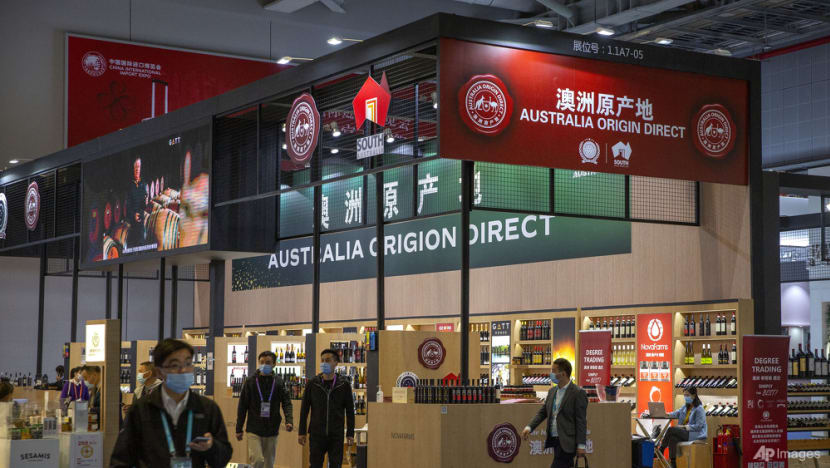Australian winemakers navigate impact of thawing trade ties with China
China in late March scrapped wine tariffs, ending three years of punitive levies and offering long-awaited relief to Australian producers.


This audio is generated by an AI tool.
HUNTER VALLEY, Sydney: Like fellow winemakers across Australia, Mr Bruce Tyrrell has had a tough three years.
When China effectively pulled the plug on imports of Australia’s wine by imposing tariffs of up to 218 per cent in 2020, vineyards like his lost a total of US$1.2 billion worth of business.
It was a big blow to Mr Tyrrell, whose family has been in the business since founding the vineyard in 1858.
“The industry has been hit very hard. About a third of Australian wine was going to China. It was the most wonderful market. Everyone was riding the dragon,” said the managing director of Tyrrell’s Wine.
Now, Australia is facing a glut with the equivalent of 3 billion bottles’ worth of wine stored in tanks and barrels.
It will take time to shift that quantity of stock, even though most vineyards have managed to find new markets. Most of these markets are also much smaller than China.
“In the last 12 months, we’ve opened six new markets. However, the six of those markets put together are not as big as China,” Mr Tyrrell told CNA.
China in late March scrapped the tariffs, ending three years of punitive levies and offering long-awaited relief to Australian wine producers.
While the move has been good news for the country’s vineyards, questions remain on the future of trade ties between the two nations.
AUSTRALIA-CHINA TRADE TIES
Australia's diplomatic relations with China have been strained since Canberra called for an independent inquiry into the origins of COVID19 in 2020.
China then cracked down on imports of Australian commodities including coal, timber, barley, lobsters and wine. Beijing has been lifting most trade blocks since a change of government in Canberra two years ago.
Even as ties slowly – but surely – return to normal, the few years of trade turbulence also highlighted the delicate nature of Australia-China economic ties.
Observers said that in a world where politics and the unexpected can so easily have a negative impact on economic relations, no nation or business can afford to assume markets will remain the same.
“China sees its trade relations – not only with Australia but with countries around the world – as simply a way of serving China’s needs,” said Mr Trevor Watson, a former Beijing correspondent with the Australian Broadcasting Corporation.
Mr James Laurenceson, director of research institute Australia-China Relations Institute, said that both nations look committed to handling their differences constructively and normalising trade ties.
“I don’t think Beijing or Canberra wants to return to the dysfunction of the 2020 through to 2023. They want to prioritise areas of mutual interest, which is very much trade,” he told CNA.
HOPE FOR INCREASED TRADE BETWEEN COUNTRIES
China accounted for 26 per cent of Australia’s total goods and services trade in FY2022/23. Two-way trade for the period amounted to A$316.9 billion (US$210 billion).
Australian Trade Minister Don Farrell called China “by far and away our largest trading partner”, and voiced hope for another A$100 billion in two-way trade once all political roadblocks have been resolved.
While many Australian wine growers are happy about the lifting of Chinese tariffs and keen to get back into business, it does not necessarily mean that trade will automatically return to normal soon.
With China’s economy slowing, Chinese consumer appetite for Australia’s vintage crop may not be the demand it once was, said observers.
There is also the question of confidence. Many vineyards have had their fingers badly burned over the past three years and may be reluctant to put all their grapes into one seemingly attractive market in the near future, they added.














